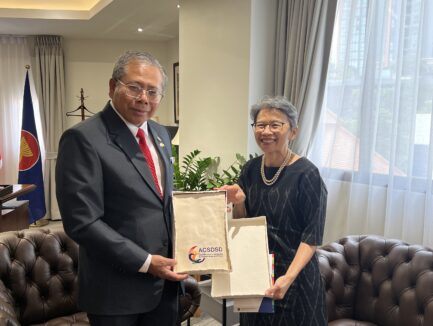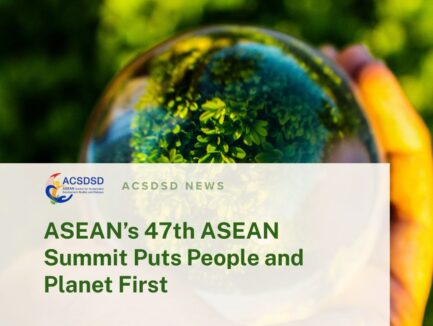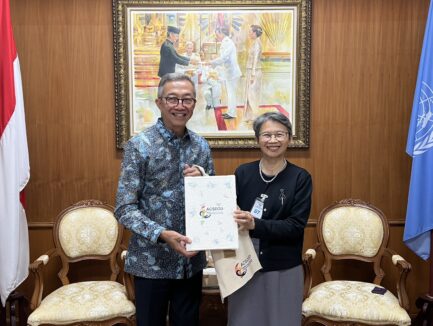Strengthening ASEAN-Korea Collaboration on Circular Economy and Sustainable Waste Management
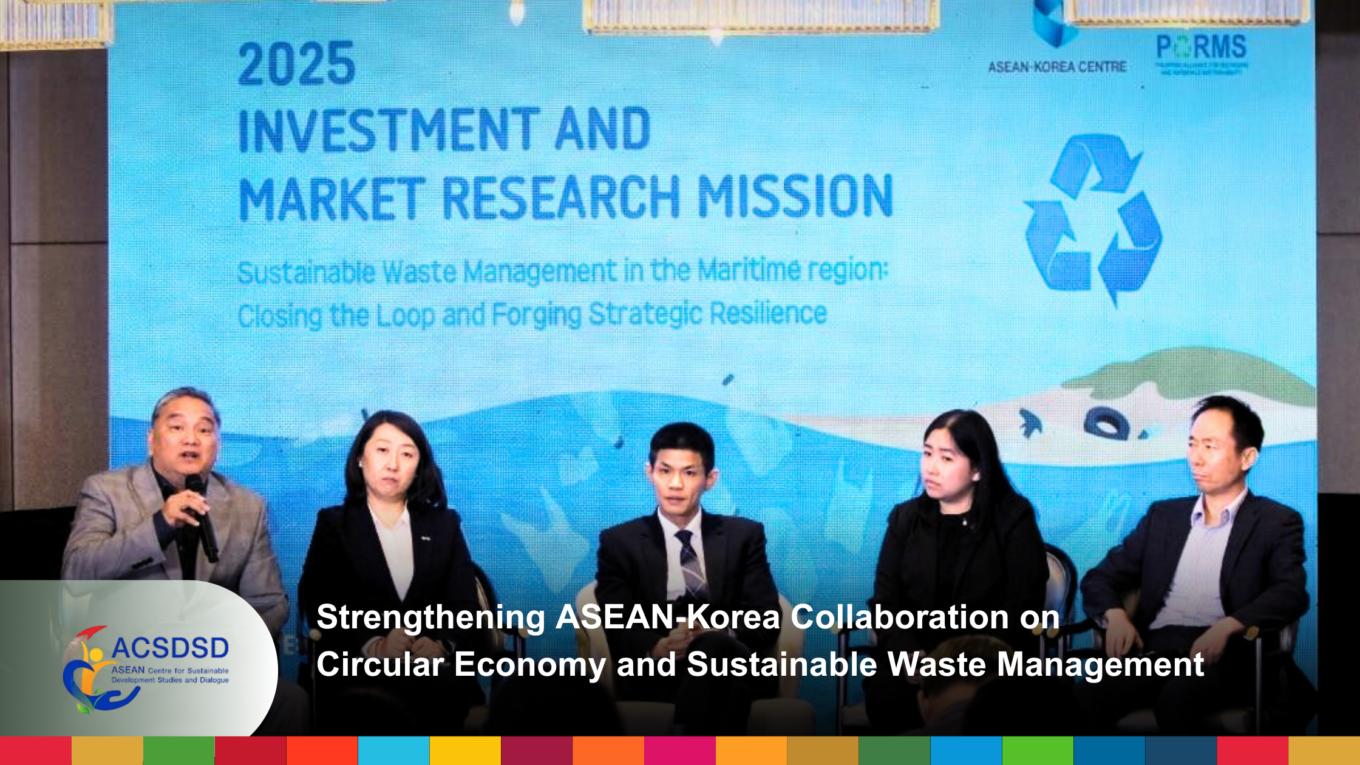
The ASEAN Circular Economy Stakeholder Platform (ACESP), under the ASEAN Centre for Sustainable Development Studies and Dialogue (ACSDSD), proudly participated in the Investment and Market Research Mission 2025, held on 3–4 July 2025 in Manila, Philippines.
Representing ACESP, Dr. Treesuvit (David) Arriyavat, Senior Project Manager, delivered a featured presentation during the Special Talk and Roundtable Discussion on the theme of advancing circular economy cooperation in ASEAN. His session focused on the region’s ongoing collaboration efforts, including:
🔹 ASEAN Community Vision 2025 & AEC Blueprint 2025
🔹 The ASEAN Sustainable Consumption and Production (SCP) Framework
🔹 Regional mechanisms that support CE transition and integrated waste management
🔹 The role of ACESP as a knowledge and collaboration platform promoting cross-sector engagement
Dr. Treesuvit also joined a panel discussion alongside leading regional and international experts, including representatives from KOICA, OSEAN, and CORA. The discussions emphasized the importance of multistakeholder partnerships in driving innovation, investment, and systems change for sustainability.
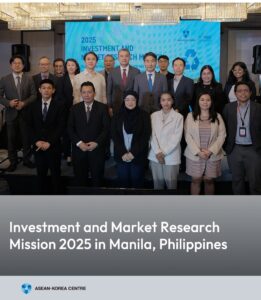
Participants had the opportunity to visit key local initiatives in the Philippines, including the Eco-Ikot Centre in Tondo and the Circular Explorer Vessel in Manila Bay—real-life examples of community- and tech-driven circular solutions.
“For ASEAN, the transition to a circular economy is not only a strategic priority, but also a shared responsibility. Platforms like ACESP help ensure inclusive participation, informed policy, and collective action,” said Dr. Treesuvit.
This event, co-hosted by the ASEAN-Korea Centre and Philippine Alliance for Resource and Materials Sustainability (PARMS), exemplified the growing synergy between government, private sector, and civil society across ASEAN and Korea.
